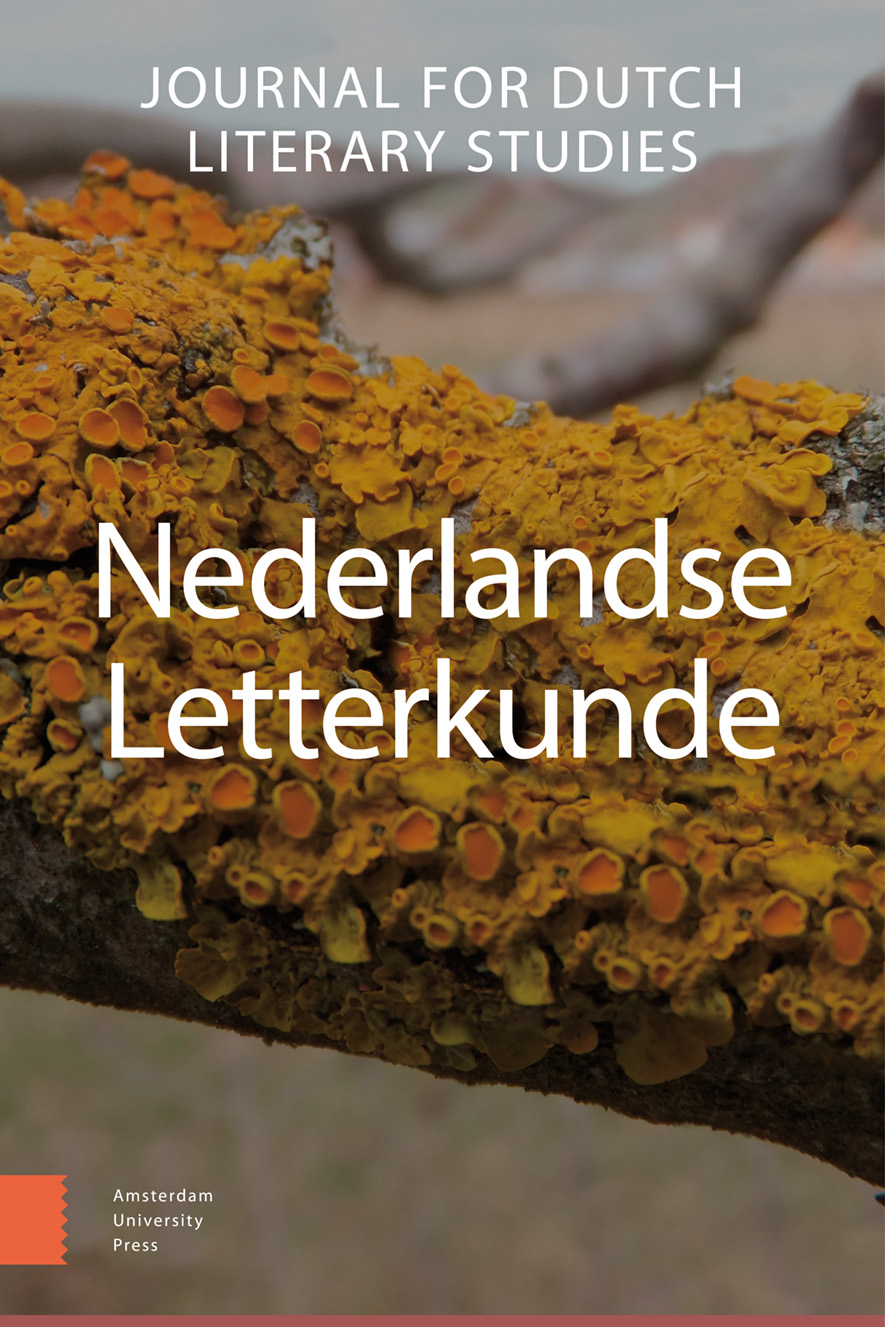-
oa Modellen in de Nederlandse literatuur. De jaren 1900-1920
Een inleiding
- Amsterdam University Press
- Source: Nederlandse Letterkunde, Volume 19, Issue 3, Dec 2014, p. 185 - 204
- Previous Article
- Table of Contents
- Next Article
Abstract
Models in Dutch Literature 1900-1920. An Introduction
In Dutch literary history, the timespan between 1900 and 1920 has often been conceived of as a period of relative calm and stability in contrast to the preceding fin-de-siècle years and the years following World War I. Recent publications, however, broadening their scope from the canonical literary texts and the major authors to a more comprehensive view on literary culture, have revealed that the first decades of the 20th century saw important changes in the structure of the literary field, alongside (and in close connection to) the emergence of new cultural practices. This special issue of Nederlandse Letterkunde wants to chart some of these changes, ranging from the rise of new genres and new ideas about literature and authorship, to a reorganization of the institutional infrastructure of literature. In the introduction we argue that, to analyze such phenomena, it is fruitful to focus on the development, reinterpretation and circulation of literary and cultural models, since all cultural behavior is model-based, as are cultural artifacts, which might in turn function as models themselves for new practices or products. To illustrate the possibilities of the concept ‘model’ we present a brief case study on the literary interview, a media genre emerging internationally at that time, followed by some general reflections on the ‘model’ approach in literary and cultural studies.


